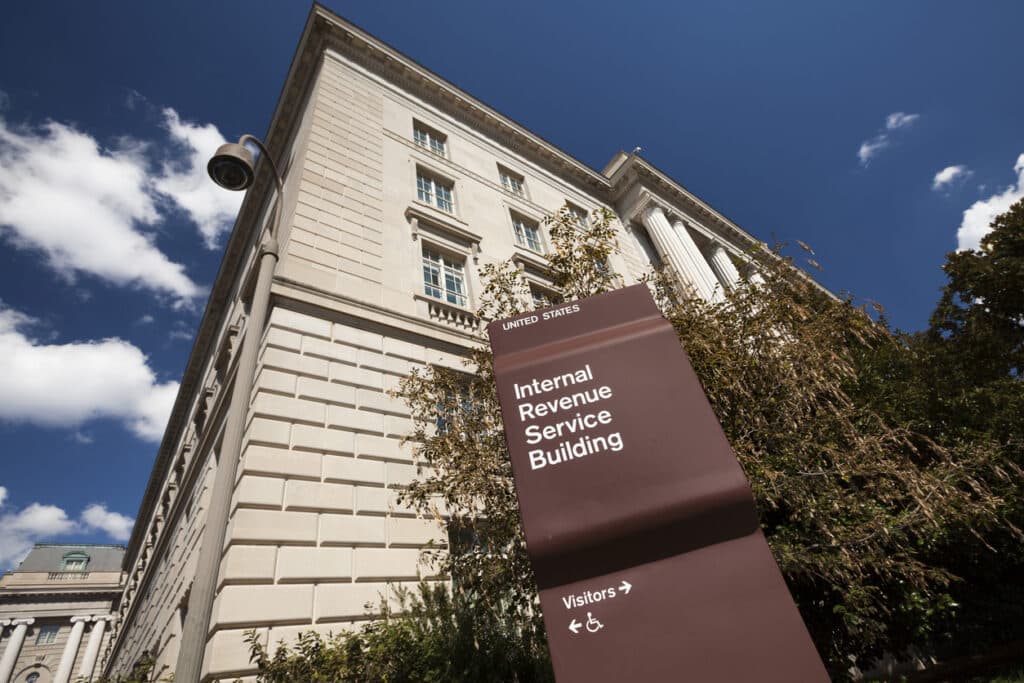On June 15, Senators Chuck Grassley (R-IA) and Ron Wyden (D-OR) introduced the IRS Whistleblower Program Improvement Act of 2021. The bill, which is supported by whistleblower advocacy groups, makes several reforms to the IRS Whistleblower Program in order to improve the program’s operations and better protect whistleblowers who expose tax fraud.
The IRS Whistleblower Program was modernized in 2006 by legislation introduced by Senator Grassley. Since then, the program has become an invaluable tool in IRS enforcement efforts, resulting in the direct collection of over $6 billion from wealthy individuals and businesses caught dodging taxes. The program offers monetary awards to individuals who disclose large-scale tax avoidance.
However, the whistleblower program has been hampered by some issues, particularly the long delays in issuing whistleblower awards. The program’s 2020 annual report to Congress revealed that on average, it takes the program 10.79 years to process an award claim. In response to these problems, advocacy groups including the National Whistleblower Center (NWC) and Taxpayers Against Fraud have been calling for reform legislation.
“NWC commends Senator Grassley and Chairman Wyden for their bipartisan leadership in championing these much-needed reforms for the IRS whistleblower program,” said Siri Nelson, NWC’s Executive Director. “NWC has long called for improvements in the IRS whistleblower program and is extremely pleased to see today’s legislation introduced. We are hopeful that the bill will be included in any IRS tax administration legislation considered by the Congress this year. Tax whistleblowers often put much at risk to report major tax frauds, helping the government recover millions. It is vital that our country has laws that properly protect and award these whistleblowers for their courage and willingness to come forward.”
The bill contains seven reforms to the IRS Whistleblower Program. According to NWC, the bill would:
- “Provide for De Novo Review of whistleblower decisions in Tax Court;
- Remove sequestration of whistleblower awards;
- Impose interest on whistleblower awards that are subject to significant delay;
- Dedicate funding for the whistleblower office;
- Assume anonymity for whistleblowers appealing to Tax Court;
- Add clarification on deduction of attorney’s fees; and
- Improve annual report to provide greater information on tax evasion to Congress and the public.”
NWC, TAF, the Government Accountability Project (GAP), and the Project on Government Oversight (POGO) sent a letter to Senators Grassley and Wyden in support of the legislation, which they say “makes several important and much-needed changes and reforms to the IRS Whistleblower Program.”
“I am so excited that TAF, POGO, GAP, and NWC were able to work together to express our support for IRS whistleblowers and this important bill,” said Nelson about the letter. “I hope Congress will be inspired by our team work and put aside their differences to put taxpayers and whistleblowers first in this bipartisan effort to further improve the already fantastic IRS program.”
According to Dean Zerbe, Senior Analyst at NWC and tax whistleblower attorney at law firm Zerbe, Miller, Fingeret, Frank & Jadav, all the reforms in the legislation are necessary but the provisions for de novo review and the imposition of interest on delayed whistleblower awards are the most meaningful.
Guaranteeing de novo review means that when whistleblowers appeal IRS award determinations, the U.S. Tax Court will make a ruling based on all the relevant facts of the case instead of a limited ruling solely in response to the administrative file of the IRS. Despite Congressional intent for whistleblowers to receive de novo review, a 2018 ruling in Kasper v. Commissioner removed this standard. According to Zerbe, “any strong whistleblower program needs de novo review provisions to ensure whistleblowers that their case will not be beholden to an arbitrary decision by a bureaucrat but instead be subject to independent review by the courts.” In January, Zerbe wrote an op-ed for WNN explaining the importance of de novo review for the IRS Whistleblower Program.
Zerbe views the imposition of interest on delayed awards as a necessary measure to combat the extreme delays in the issuance of awards. “For a whistleblower on the fence about making a disclosure there is nothing more encouraging than seeing another whistleblower receive a large award,” Zerbe says. “This requirement is Congress sending a clear signal to the IRS that it needs to be quicker in issuing whistleblower awards.”
“Overall, whistleblowers should be heartened by Grassley and Wyden’s bill,” Zerbe adds. “I am confident it will find its way into larger tax administration legislation and reach the President’s desk for a signature.”
“The tax whistleblower law has recovered billions of dollars to the U.S. Treasury. Tens of thousands of illegal offshore accounts have been shut down by whistleblower disclosures. It’s time for the Department of Treasury to properly implement the IRS whistleblower law. This bill will achieve that goal,” said whistleblower attorney Stephen M. Kohn of Kohn, Kohn & Colapinto. Kohn, who also serves as the Chairman of the Board of Directors of NWC, praised the bipartisan nature of the amendments, stating: “Senators Charles Grassley and Ron Wyden exemplify the bipartisanship needed to hold tax cheats accountable.”
“The IRS whistleblower program has been a genuine success for American taxpayers,” Senator Grassley said in a June 15 press release. “We ought to do whatever we can to ensure its continued success, so tax dodgers and fraudsters pay what they owe. Toward this end, it’s vital that whistleblowers who come forward are protected and treated fairly.”
Read:
Grassley, Wyden Introduce Bill to Strengthen Successful IRS Whistleblower Programs
